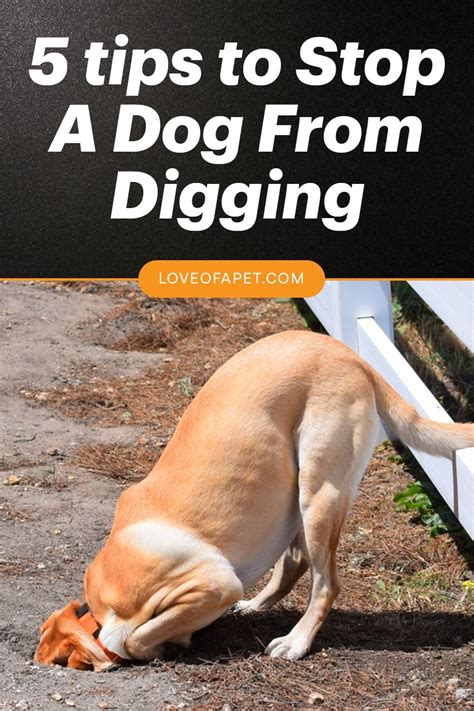How to Stop Dogs From Digging: A Comprehensive Guide
Is your furry friend turning your yard into a lunar landscape? Digging can be a frustrating habit for dog owners, but understanding the why behind the digging is the first step to stopping it. This comprehensive guide will explore the common reasons dogs dig and offer effective solutions to curb this unwanted behavior.
Why Do Dogs Dig?
Before we jump into solutions, let's understand the motivations behind your dog's digging escapades. Several factors can contribute to this behavior:
Instinct:
- Burrowing: Many breeds, especially those with terrier ancestry, have a strong instinct to dig. It's in their DNA! This instinctual behavior is deeply rooted and requires patience and consistent training to overcome.
- Hunting: Dogs may dig to hunt for prey, such as rodents, insects, or even just the scent of something interesting.
Environmental Factors:
- Boredom and Lack of Exercise: A bored dog is a digging dog. Insufficient mental and physical stimulation can lead to destructive behaviors like digging.
- Heat: Dogs may dig to create cooler spots in the ground, especially during hot summer months.
- Seeking Comfort: Sometimes, dogs dig to create a comfortable bed or den. This is especially common for anxious dogs.
Other Reasons:
- Anxiety and Stress: Separation anxiety or general anxiety can manifest as digging.
- Medical Conditions: In some cases, digging can be a symptom of an underlying medical condition. Consult your veterinarian if you suspect this is the case.
Effective Strategies to Stop Digging
Now that we understand the reasons behind digging, let's explore effective solutions:
1. Provide Sufficient Exercise and Mental Stimulation:
- Daily Walks: Ensure your dog gets plenty of exercise. Long walks, runs, and playtime will tire them out, reducing the likelihood of digging.
- Interactive Toys: Puzzle toys, treat balls, and other interactive games will keep your dog mentally stimulated.
- Training: Training sessions provide mental enrichment and strengthen your bond with your dog.
2. Create a Digging Zone:
- Designated Area: Designate a specific area in your yard where your dog is allowed to dig. This could be a sandbox filled with sand or a small patch of loose soil.
- Positive Reinforcement: Reward your dog when they dig in the designated area.
3. Address Underlying Anxiety:
- Consult a Veterinarian or Trainer: If anxiety is the cause, consult a veterinarian or a certified dog trainer for professional guidance.
- Calming Aids: Consider using calming aids like pheromone diffusers or calming treats, but always consult your vet first.
4. Make the Area Less Appealing:
- Physical Barriers: Use chicken wire, landscape fabric, or rocks to deter digging in undesired areas.
- Repellents: Commercial dog repellents can be used, but always test a small area first to ensure they don't harm your dog or plants.
5. Positive Reinforcement Training:
- Reward Good Behavior: Praise and reward your dog when they engage in positive behaviors instead of digging.
- Avoid Punishment: Punishing your dog for digging will only increase anxiety and won't solve the problem.
When to Seek Professional Help
If you've tried various methods and your dog continues to dig excessively, consider seeking professional help from a certified dog trainer or veterinarian. They can help identify the underlying cause and create a tailored behavior modification plan.
By understanding your dog's behavior and implementing these strategies, you can effectively curb digging and maintain a beautiful, dig-free yard. Remember, patience and consistency are key to success!
